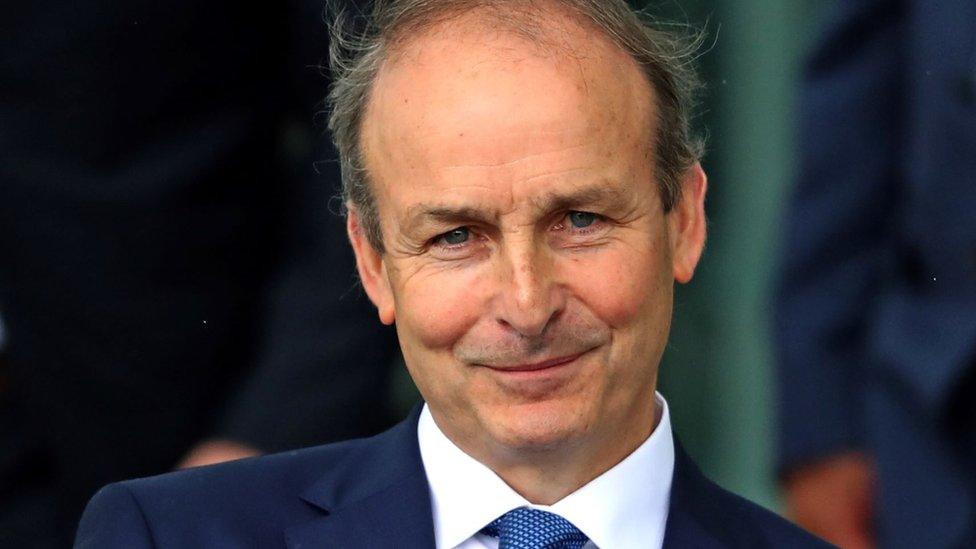Micheál Martin's first month as taoiseach
- Published
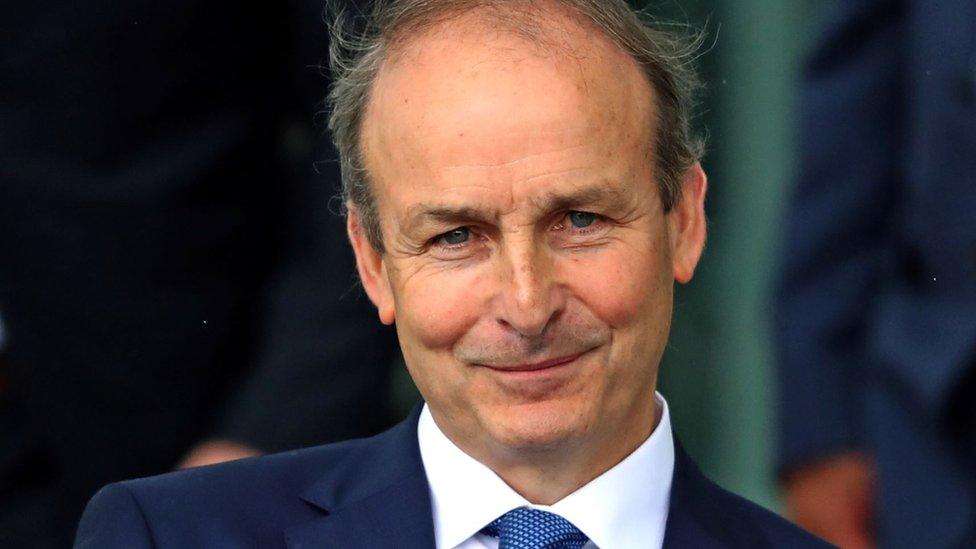
His first month in office has seen the new taoiseach face some difficulties
There has been no political honeymoon for Micheál Martin, who was elected taoiseach (Irish prime minister) on the last Saturday of June as the head of a coalition that included his Fianna Fáil party, Fine Gael and the Greens.
And the August break can't come soon enough for a leader who knows that the autumn could also prove difficult.
But before that he has the last major set piece before the summer break - meeting Northern Ireland's political leaders at the North South Ministerial Council.
The cross-border body hasn't met in more than three years because of the suspension of Stormont.
The council was set up as part of the 1998 Good Friday Agreement, which Mícheál Martin says is his guiding principle on Northern Ireland and north-south matters.
Friday's meeting at Dublin Castle takes place against the backdrop of Brexit negotiations and the coronavirus pandemic - issues that could cast a long shadow over any Irish government.
Cromwell comparisons?
The first criticism of the new taoiseach came just hours after he had been elected and announced his cabinet.
With no cabinet minister with a departmental portfolio from as far south as Limerick on the west coast, to Donegal in the north, there were over-the-top cries that he had abandoned the west and was treating it like Oliver Cromwell, who is infamous in the Republic of Ireland and regarded by many as a mass murderer.
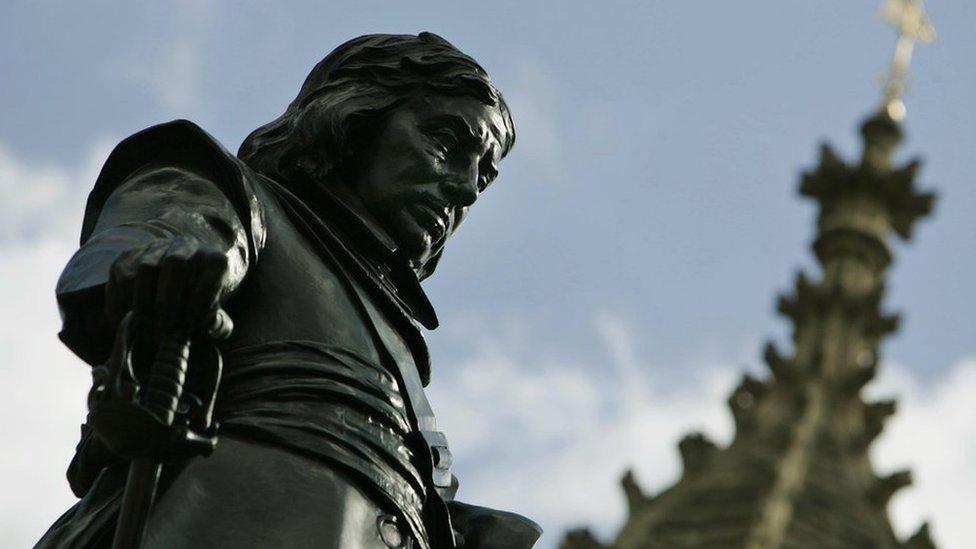
Oliver Cromwell is a highly controversial figure for many people
Cromwell is also reputed to have said to the native Irish "to Hell or to Connacht" before he forcibly moved them in a plantation and settled their lands with protestants from Britain.
Mr Martin's ministerial appointments also caused great disquiet in his own party because the deputy leader of Fianna Fáil - Dara Calleary, from the west and who helped negotiate the coalition deal - didn't get a full cabinet job but was made chief whip.
Inevitably too there were others disappointed at not getting ministerial jobs - Jim O'Callaghan, a potential focus of opposition to the taoiseach inside the Fianna Fáil party, refused a junior ministerial job.
Sacking, a pay cut and a resignation
Then came the Barry Cowen saga.
The new agriculture minister admitted not telling the taoiseach that he had a drink-driving conviction dating from 2016.
He made a fulsome apology to the Dáil (Irish parliament) but then refused to answer questions in the House as new allegations emerged - denied by him - that the gardaí (police) file on the case suggested that he tried to avoid the checkpoint.
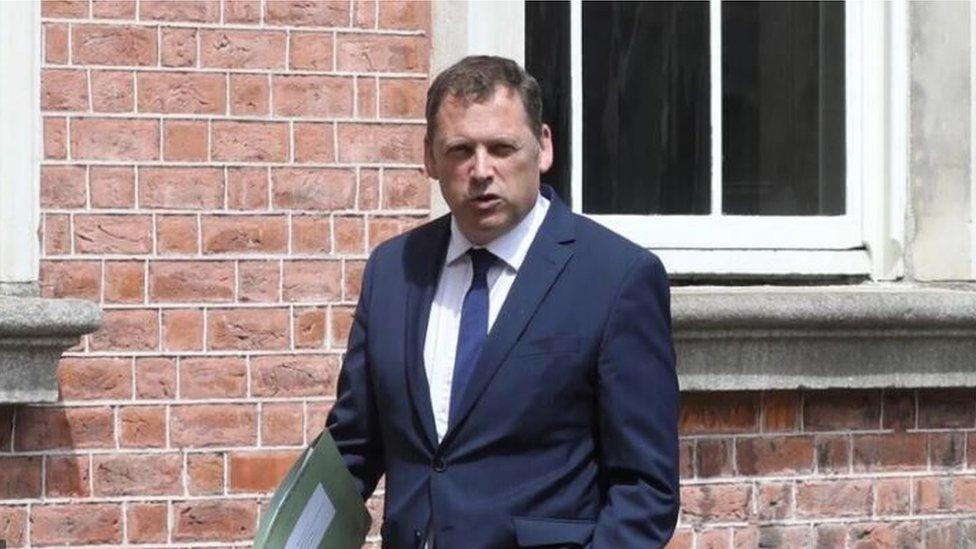
Barry Cowen was appointed Irish agriculture minister in June
Mr Martin felt he had no alternative but to sack Mr Cowen just 17 days after appointing him.
The appointment of Dara Calleary as replacement at least meant the west now had a full cabinet minister.
Other controversies quickly followed.
The cabinet agreed to take a 10% pay cut but will still end up with more money than the previous one because Leo Varadkar's Fine Gael-led administration refused to take entitlements.
Others contrast that ministerial so-called virtue signalling, at a time of mounting national debt because of the Covid-19 pandemic, with an administration that is still allowing senior public servants to receive pay rises.
The most recent issue for Mr Martin to consider has been a resignation, although not from his party but still a sign of difficulty that could lie ahead for the three-party coalition.
Green politician Neasa Hourigan resigned as her party whip on Thursday after voting against the government twice in the Dáil on amendments to a housing bill.
Schools and stimulus
But it has not all been bad news.
The roadmap announced this week for the full reopening of schools at the end of August has been broadly welcomed, even if there is some scepticism that such a tight deadline - including the hiring of 1,000 teachers - can be met.
And the €5.2bn (£4.7bn) July economic stimulus to deal with the consequences of Covid-19 also got a good reception.
When ministers return to their desks at the end of August, they will face a busy couple of months before the October budget, while hoping the schools reopening will be a success.
Other taoisigh (Irish prime ministers) have had difficult starts and turned things around, and, while all were at the mercy of events, none was at the mercy of an uncertain global pandemic.
- Published15 July 2020
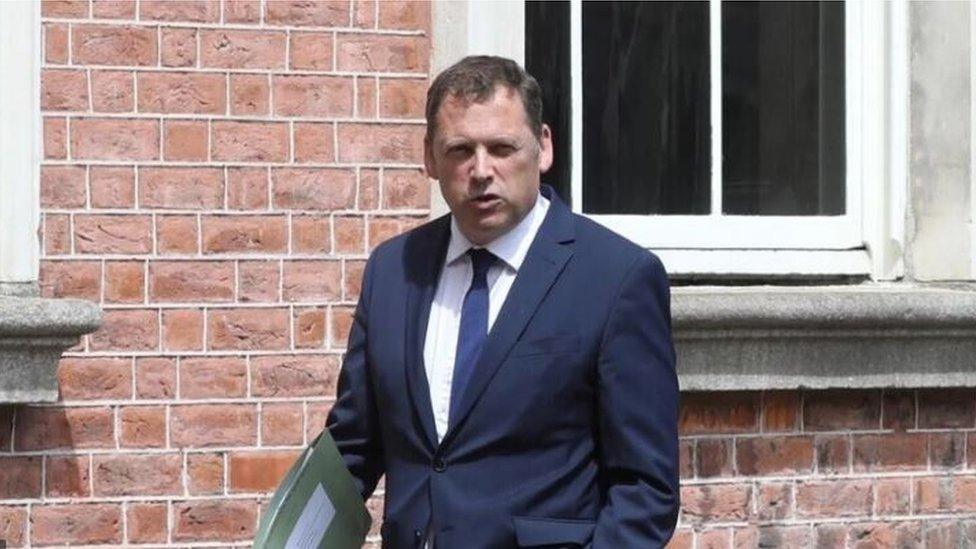
- Published27 June 2020
